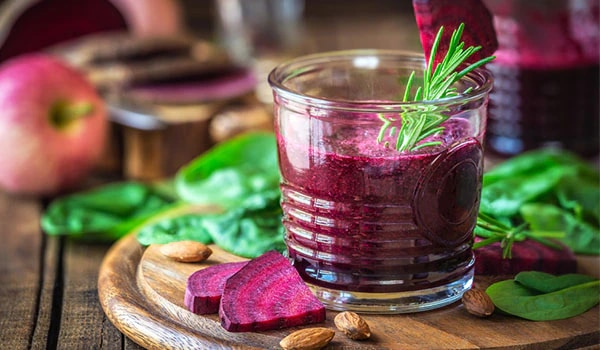
Fennel Flower
Nigella sativa seed, also known as Fennel Flower or more commonly Black Cumin is used in many Indian cuisines, especially in Bengali cooking and in the making and garnishing of a naan. Black Seed or the “seed of blessing” is one of the greatest healing herbs. Cleansing your body of toxins, Black Seed comes packed with antioxidants and pumps your body with a rich supply of polyunsaturated fatty acids. In addition, the magic ingredient will help regulate your body’s metabolism, balance insulin levels, regulate cholesterol, improve body circulation and promote healthy liver function. And in case, you’re wondering what you need to do to get your hands on this magic seed—relax. Black Seed is just the English name for kalonji—an ingredient that you’re probably all too familiar with.

From Quinoa to Naachni
Hot on the health-food radar is Quinoa—a South American ingredient, rich in protein, essential amino acids and minerals. Gluten free and easy to digest, this ingredient is unfortunately not readily available in India. Naachni or finger millet however, is an extremely rich grain and one that is widely available and used in India. Along with protein, it contains a high amounts of iron, calcium, amino acids, vitamins A and B and phosphorous. Like quinoa, naachni too is gluten-free and, as an added bonus, is rich in fibre too.
You can use naachni to make ragi roti, ragi porridge, ragi dosa and mixed flour parathas.

Bringing Chia Seeds closer to home
Last year’s fad ingredient—Chia Seeds may sound as exotic as can be, but what if we gave you its alternate desi counterpart, which is a whole lot more accessible? Sweet Basil seeds, falooda seeds, tukmaria or Sabja seeds, as we know them, at one point, were one of the most underestimated ingredients in Indian cooking. Most commonly used in making falooda, Sweet Basil seeds are added to a multitude of sherbets, milkshakes and other drinks. Tukmaria or Sabja seeds are cooling, which is why they’re added to so many drinks. They boast a range of health benefits—starting from helping with sore throats, cold and respiratory disorders, digestion and constipation, all the way to having a calming effect on your body and uplifting your mood. Swap in all the drool-worthy chia seed recipes you’ve been eyeing on Pinterest with Sabja seeds and we assure you the result will be worth it.

From Kale to Karam Sag
Everything from kale chips to the kale juice variety gets our health-fad hearts pumping. What’s not to fall for, when every health-celeb out there is raving about this super ingredient? But if like always, the strange sound of the ingredient is making you wary, we’ve got another all desi solution for you and it goes by the name of karam sag. The unsung hero among green leafy veggies, kale or karam sag (which is not just another alternative, but the Hindi word for kale!) is a type of cabbage that is rarely eaten in India but is readily available. One cup of kale has no more than 35 calories. Full of roughage and low in fat, kale truly is the quintessential weight-loss ingredient, leaving you with a slim waist line and a healthy heart. In addition, kale is rich in iron, calcium and folate, which helps produce haemoglobin and makes it essential for bone health. In removing toxins from your body, kale makes for a detoxifying agent and apart from being rich in Omega-3 Fatty Acids, kale is a rich source of Vitamin E. With a glowing complexion and a lustrous mane of hair, do we really need to give you another reason to add this vegetable to your shopping cart?

Flax Seeds
Linseeds, flax seeds or alsi seeds—it’s all the same thing. Flat, oval, glossy and with a hard hull pointed at one end, these seeds come in a reddish brown colour and are valued the world over for their health benefits. Flax seeds contain over 40 per cent oil and that oil is made up of a mixture of fatty acids. However, the important thing to note is that flax seed oil contains the highest single source of a fatty acid known as alpha-linolenic acid (ALA). ALA is a member of the omega-3 fatty acid family and is an essential fatty acid that the body cannot make but is absolutely necessary for normal growth and development, and so it is crucial to extract these acids from the diet that you intake. Once you buy the seeds (they’re not expensive and should be available at your local grocer), it is imperative for you to grind them (you can use a coffee grinder) since they come in a hard-headed shell. Otherwise they will pass through your body undigested.
#BBTip: You can use flax seed oil instead of ghee or any other cooking oil that you use to spread on your rotis. However, remember that Flaxseed oil is not very heat stable so you can't cook with it or heat it.
















 Privacy Notice
Privacy Notice
Written by Nazneen Joshi on 26th Aug 2014